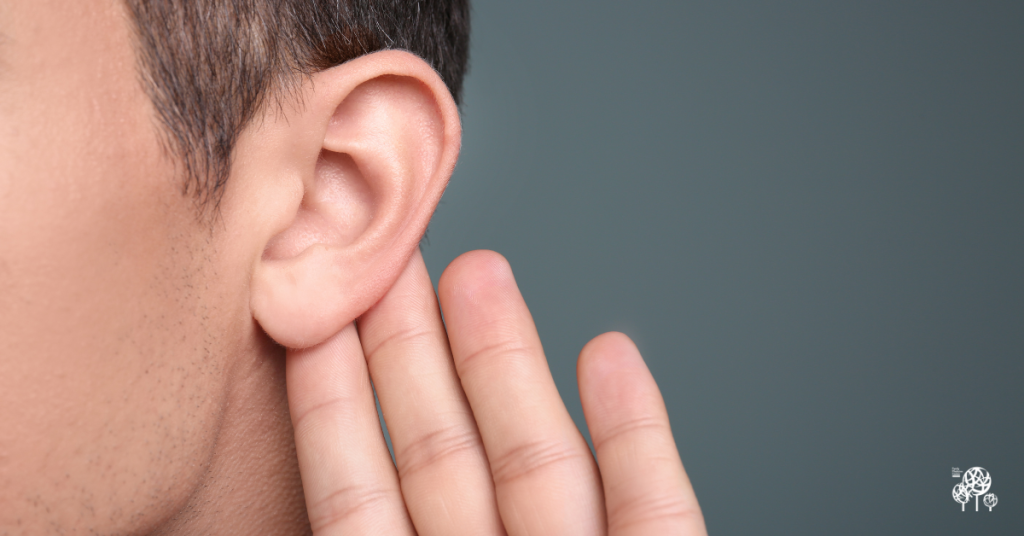Why hearing care is essential not just for your ears—but for your memory, mood, and mind.
Most people think of hearing loss as an inconvenience—a matter of turning up the volume or asking people to repeat themselves.
But research continues to show that the consequences of untreated hearing loss reach far beyond sound. In fact, your ears and brain are deeply connected—and when one is compromised, the other often suffers. We believe hearing care is brain care.
Whether you’re noticing subtle hearing changes or navigating more advanced loss, addressing it early can make a significant impact on your cognitive health, quality of life, and emotional well-being.
🧠 Your Brain Works Harder to Fill in the Gaps
When hearing declines, your brain doesn’t just sit back—it works overtime to fill in the missing pieces of speech and sound. This added strain can lead to fatigue, reduced concentration, and over time, cognitive overload. It’s like trying to read a book with half the pages missing—your brain is constantly guessing.
💬 Sound familiar? You feel mentally drained after conversations, or struggle to keep up in group settings even when you’re focused.
💡 Pro tip: If you’re avoiding social situations because listening feels exhausting, it’s time for a hearing check.
🧓 Untreated Hearing Loss Is Linked to Cognitive Decline
Multiple studies have found a strong correlation between untreated hearing loss and increased risk of dementia, memory loss, and cognitive impairment. Researchers believe this is due to both the social isolation hearing loss can cause and the increased cognitive effort required just to process sound.
🤓 Interesting note: Adults with untreated moderate hearing loss are up to three times more likely to develop dementia.
👀 What to watch for: If memory lapses are becoming more common or confusion increases in noisy environments, hearing loss may be a contributing factor.
🗣️ Hearing Loss Can Shrink the Parts of Your Brain That Process Sound
The auditory cortex—the area of your brain responsible for interpreting sound—can actually shrink from lack of stimulation. When you stop clearly hearing certain frequencies or tones, those parts of the brain become less active, leading to a decline in function over time.
💡 Pro tip: Keeping the brain stimulated through clear, consistent sound input helps preserve neural pathways and promotes long-term brain health.
💬 Sound familiar? It’s not that you “didn’t hear”—you heard, but didn’t understand. That’s a sign your brain isn’t processing sound like it used to.
👵 Hearing Aids Can Help More Than Your Ears
Modern hearing aids are discreet, comfortable, and designed to reduce cognitive strain by enhancing clarity—not just volume. Studies show that hearing aid use may slow cognitive decline and improve memory, attention span, and even mood.
👀 What to watch for: If you’ve been resistant to hearing aids due to stigma or fear, know that today’s technology is advanced, elegant, and life-changing.
🤓 Interesting note: People who treat their hearing loss early experience less brain shrinkage and maintain better cognitive performance as they age.
🩺 Protecting Your Hearing Means Protecting Your Independence
Hearing loss can lead to loneliness, depression, and a sense of disconnection—factors that are also linked to declining mental and emotional health. Taking care of your hearing helps preserve your independence, communication skills, and ability to engage with the world fully.
💡 Pro tip: Don’t wait for hearing loss to become “severe.” Early testing and treatment can prevent long-term cognitive effects and keep you sharp for years to come.
👀 What to watch for: Withdrawal from conversations or increasing frustration in social situations may be signs it’s time for a checkup.
Hear Better. Think Better. Live Better.
Hearing loss isn’t just about what you’re missing—it’s about how your brain is coping with the silence. By caring for your hearing, you’re investing in your memory, clarity, relationships, and future well-being.
At Family Medicine Center, our Audiologist provides comprehensive hearing evaluations and personalized care to protect both your ears and your mind.
📞 Call (242) 702-9310 to schedule your hearing check
📅 Book a consultation and take the first step toward clearer sound and stronger brain health.

